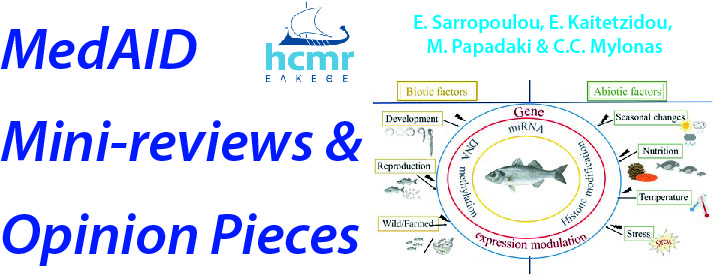i) What is your contribution to the MedAID project?
WP4 (Health management, diseases and fish welfare), in which I participate as a partner, aims at strengthening the diagnostic capacity of laboratories by standardizing diagnostic protocols and (Standard Operating Procedures) SOPs and by organizing Proficiency Tests (PTs). Since I am the Responsible of the OIE Reference laboratory for viral encephalopathy and retinopathy disease (VER), which is located in my laboratory at the IZSVE, I have been asked to lead the activities targeting this important marine pathogen. Continue reading



